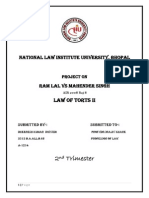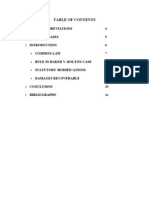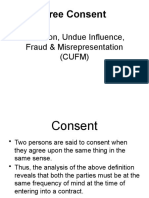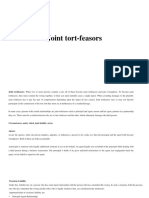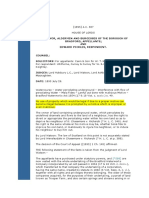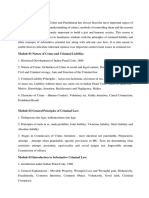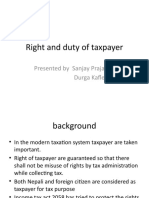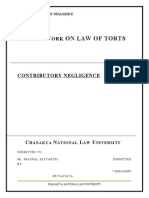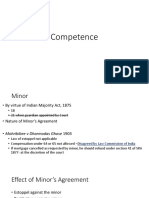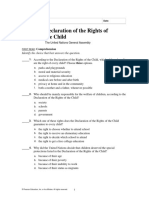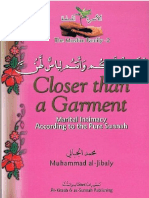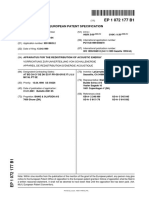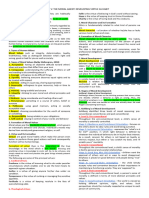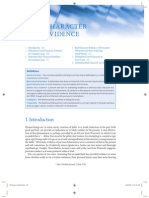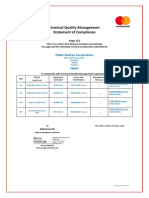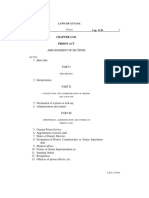0% found this document useful (0 votes)
279 views4 pagesClass Notes - Module III - Capacity To Commit Tort
This document discusses the capacity to sue and be sued in torts for various entities and individuals. It covers animate entities like convicts, husbands and wives, minors, and people of unsound mind. It also discusses inanimate entities like corporations and trade unions. Some key points are:
1. Convicts, husbands and wives, and minors can sue and be sued in torts. People of unsound mind may have limited capacity depending on the nature of their insanity.
2. Corporations as legal entities have full capacity to sue and be sued.
3. Trade unions cannot be sued for acts done in furtherance of a trade dispute against their members for inducing contract breaches
Uploaded by
Tanishk MediaCopyright
© © All Rights Reserved
We take content rights seriously. If you suspect this is your content, claim it here.
Available Formats
Download as PDF, TXT or read online on Scribd
0% found this document useful (0 votes)
279 views4 pagesClass Notes - Module III - Capacity To Commit Tort
This document discusses the capacity to sue and be sued in torts for various entities and individuals. It covers animate entities like convicts, husbands and wives, minors, and people of unsound mind. It also discusses inanimate entities like corporations and trade unions. Some key points are:
1. Convicts, husbands and wives, and minors can sue and be sued in torts. People of unsound mind may have limited capacity depending on the nature of their insanity.
2. Corporations as legal entities have full capacity to sue and be sued.
3. Trade unions cannot be sued for acts done in furtherance of a trade dispute against their members for inducing contract breaches
Uploaded by
Tanishk MediaCopyright
© © All Rights Reserved
We take content rights seriously. If you suspect this is your content, claim it here.
Available Formats
Download as PDF, TXT or read online on Scribd
/ 4
